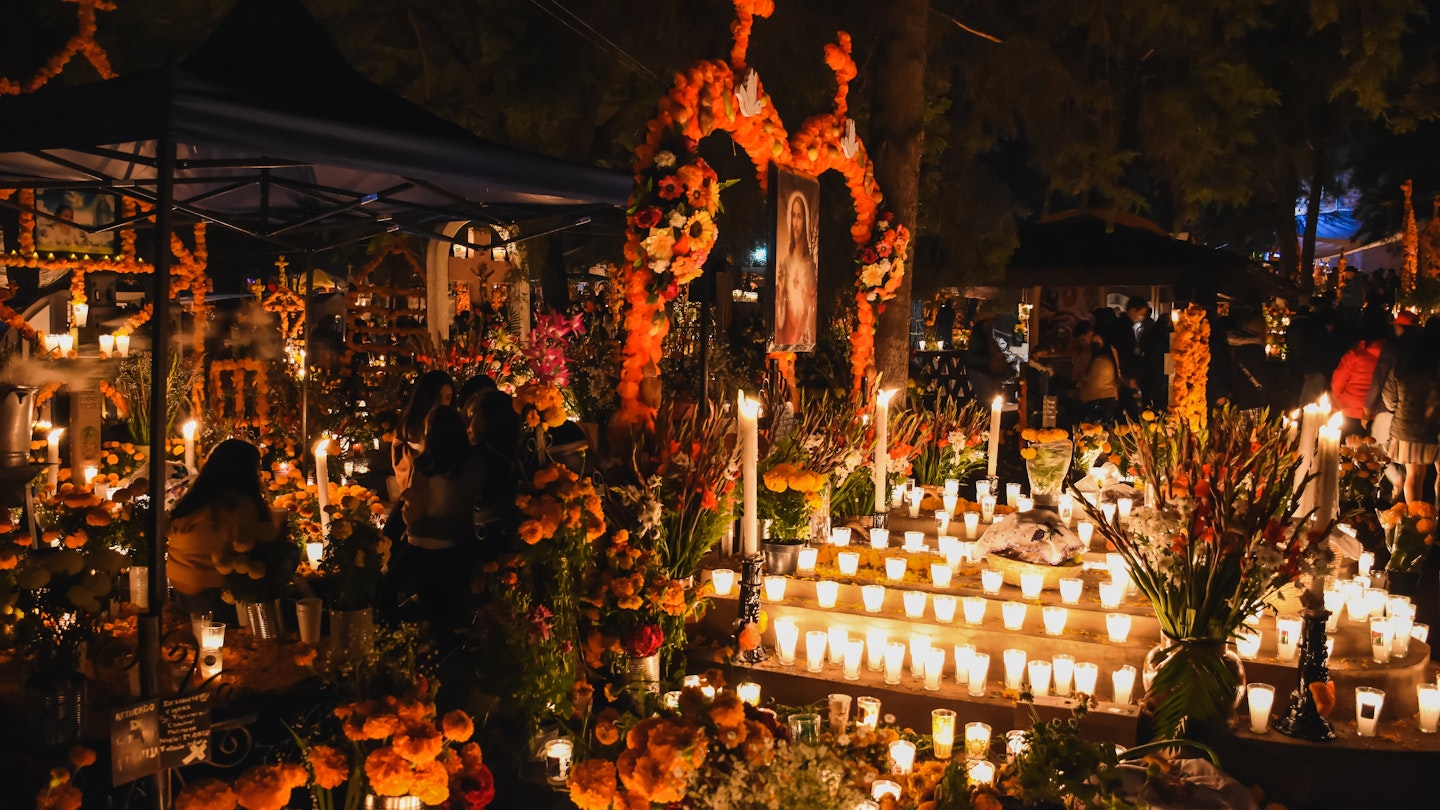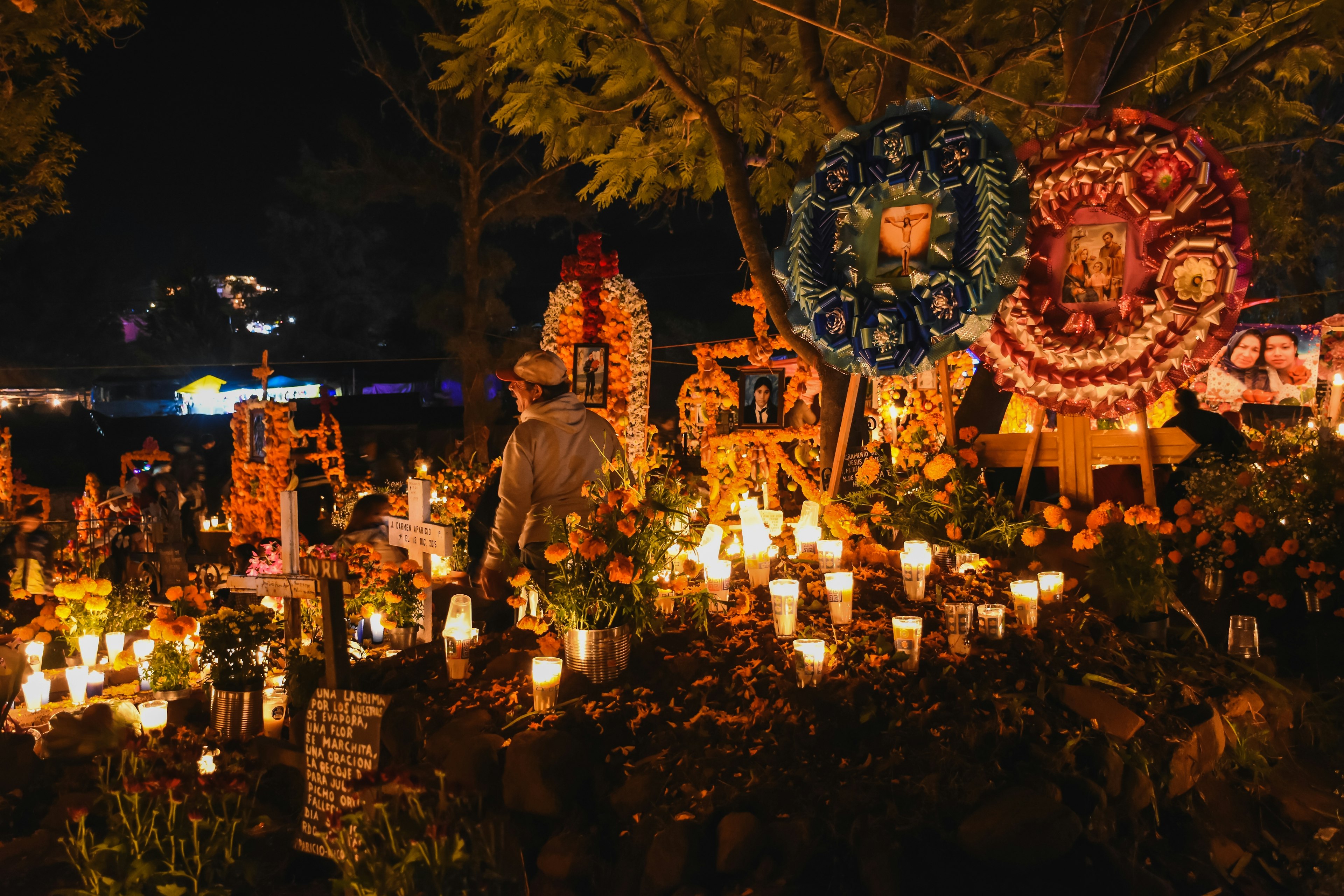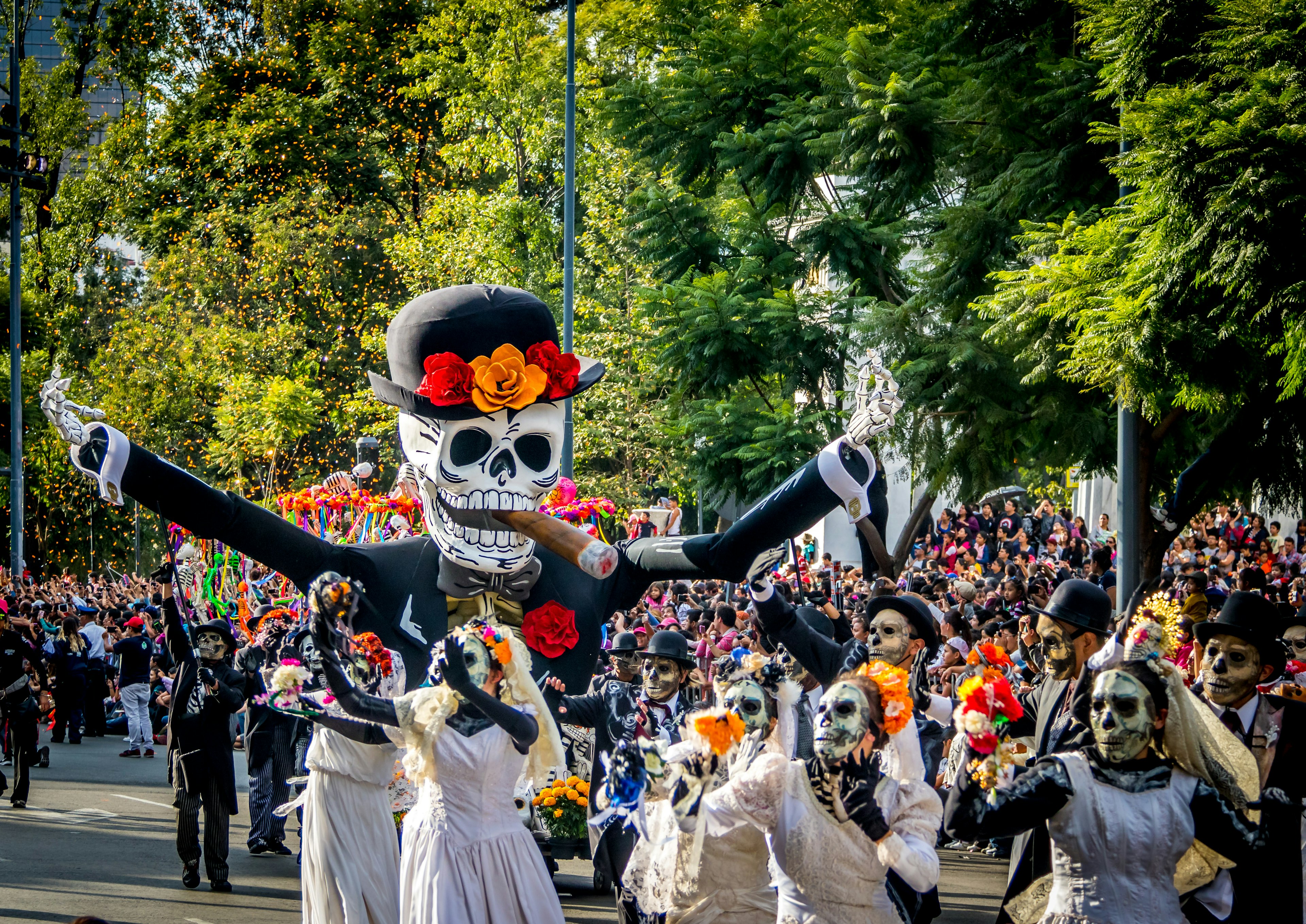
Jan 28, 2020 • 4 min read

Aug 29, 2019 • 7 min read

Día de Muertos is celebrated in many different parts of Mexico with stunning offerings to lost loved ones. Eve Orea / Shutterstock
In recent years, Día de Muertos has reached unprecedented fame, and not just in Mexico. Pixar’s Coco may have had something to do with the celebration’s rise in popularity, but a newfound pride in the tradition is also to blame. While, traditionally, Día de Muertos was celebrated in towns and barrios on the outskirts of bigger cities, these days even urban Mexicans set up altars in their trendy Roma or Condesa apartments.

Visitors who want to experience Día de Muertos will have plenty of options to choose from, whether they prefer to stay close to Mexico City or head to traditional Day of the Dead hotspots like Oaxaca and Michoacán.

A recent addition to the capital’s cultural events calendar, The Day of the Dead Parade is back for its third installment and it promises to be as spectacular as in previous years. True, it was the James Bond film's depiction of a Day of the Dead parade in Mexico City that inspired the real one to come to life, but if you find yourself in CDMX in early November, you won’t be sorry to follow in the locals’ footsteps.
Dazzling floats, dancing Catrinas – elegantly-dressed skeleton women – and enormous puppets resembling Frida Kahlo and other famous figures from Mexico’s historical and cultural past will march by wide-eyed spectators along Avenida Reforma.
This is an event that definitely draws in the crowd, so make sure you arrive a couple of hours before the parade is set to start to grab a spot at the front and actually see the parade go by – as opposed to endless rows of people standing in front of you.
The main parade will take place on November 2nd from 4-8 pm along Avenida Reforma. It will start at the Estela de Luz monument and end at the Zócalo square (where a formidable Day of the Dead altar will be set up from October 25 to November 17).
If you find yourself in the area on October 26th, you can also attend the Catrina parade to see hundreds of people – performers and revelers alike – dressed up as graceful skeletons in opulent costumes.
Mixquic, a neighborhood in the outskirts of Mexico City that’s been named a Barrio Mágico by the Secretary of Tourism, offers visitors the opportunity to get a glimpse of the traditions surrounding the Day of the Dead while staying close to town.
The highlight of your visit will be going to the cemetery late at night to see elaborately adorned tombstones covered in orange cempasuchitl petals – Mexican marigolds – flower arrangements and candles. Families go to great lengths in decorating their deceased loved ones' tombs, and some are true works of art.
While you wait for the main event, you can wander the streets of the barrio itself, which is also dressed for the occasion with striking Day of the Dead graffiti along its walls. During this time, people open their homes for visitors to admire the ofrendas (altars) they set up to guide the spirits of their departed family members back home for the night, so follow the crowds and see where the night takes you.
Visiting Mixquic will take about half your day, and the best way to get there is by renting a car. Buy yourself a local SIM card, download the Waze app – everyone in Mexico relies on Waze for directions and to avoid traffic – and head south to Mixquic with some friends.
Start your journey in the afternoon to ensure you find parking once there. There’s no accommodation in the barrio, so you’ll have to drive back to CDMX late at night after your visit to the cemetery. Keep in mind that the drive will take around 2 hours.
Learn more about the celebrations before you head to Mexico

Oaxaca is indisputably one of the main places in the country to experience Day of the Dead. With one of the country's highest indigenous populations, Oaxaca itself is quite traditional and Día de Muertos celebrations extend over the course of a few days.
Visitors can see decorated altars and lit up niches at the Panteón General on the nights of November 1st and 2nd, or visit the cemeteries in the villages surrounding the city, such as Xoxocotlán. During the day, you can browse through colorful markets that sell Day of the Dead handicrafts, like the Mercado 20 de Noviembre, and watch as families buy the treats that they’ll set up for their dearly departed at the family ofrendas.
Make sure you try some pan de muerto (a pastry with sugary bone-shaped decorations on top that's only made at this time of year throughout the country) or some local pan de yema, "yolk bread," dunked in traditional Oaxacan hot chocolate.
You can get to Oaxaca from Mexico City either by flying or driving, but keep in mind that the drive will take about 6 hours (a bit longer if you take the bus) and part of it will be through winding mountain roads.
Given that this is a very popular time to visit Oaxaca, make sure you book your accommodation well in advance. La Betulia Bed & Breakfast is a charming bed and breakfast with a central courtyard in a quiet part of town and it serves delicious cooked-to-order breakfasts.
Experiencing Día de Muertos in Michoacán is on everyone’s bucket list. One of the main celebrations takes place on the Island of Janitzio, on the shores of Lake Pátzcuaro. The view of the town at night is spectacular, lit up with candles and covered in cempasuchil flowers. Visitors can either stay in Janitzio for the night or return to the mainland after visiting the town and the cemetery, as there are boats going to and fro all night.
Finding accommodation in the state’s Pueblos Mágicos is not always easy. If you didn’t book a room well in advance, you can still experience one of the most striking Day of the Dead celebrations in the country by going on a (long) day trip from Mexico City.
Aztec Explorers organize a tour that will allow you to visit the towns of Pátzcuaro, Tzintzuntzán and the Island of Janitzio all in one day before returning to Mexico City. The distance covered is not insignificant, but they take care of all the details, so you’ll be comfortable and well looked after.
If you're looking for a place to celebrate Día de Muertos in the US check out these 9 cities
Oaxaca and Michoacán are perhaps the most widely-known places to celebrate Day of the Dead, but the traditions in La Huasteca Potosina are unlike any others in the country. Away from the gaze of tourists, the celebrations here have more of a regional feel to them.
While the tradition of setting up an ofrenda at the cemetery definitely exists, the way towns commemorate their dead goes much further. Dubbed Xantolo, this local Day of the Dead celebration is a dynamic and traditional affair where people take to the streets in costume to perform dances in groups called comparsas – in a manner not unlike a carnival.
The main square and surrounding streets of each town comes alive with performers of all ages and, as a visitor, you’ll feel like you’re witnessing something few others have seen.
To enjoy Xantolo to the max, you’ll need to rely on local guides that will help you figure out when each town is holding their celebrations. Auténtico San Luis have updated information of the performances and they can drive you from one town to the next.
We recommend you fly into the city of San Luis Potosí and start your journey there. Aquismón and Ciudad Valles have simple and clean accommodation options that can serve as your base to explore the region.

Art and Culture
Halloween, Día de Muertos and more spooky festivals around the worldOct 19, 2023 • 5 min read

Jan 28, 2020 • 4 min read


Sep 5, 2019 • 7 min read



Apr 15, 2019 • 4 min read


Oct 2, 2024 • 6 min read
